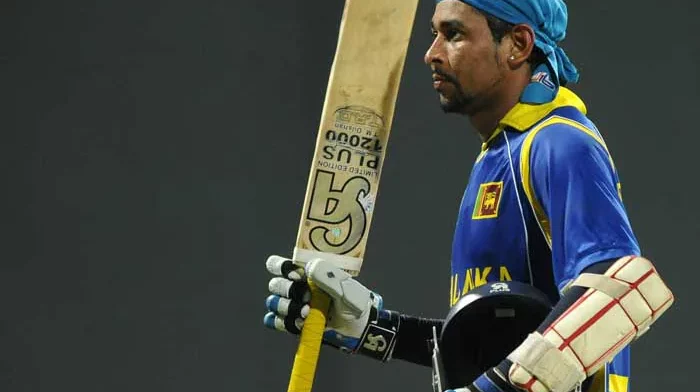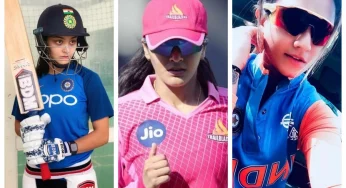2011 World Cup highest run scorer: Who won 2011 World Cup?
Published on: Jun 20, 2023 6:38 pm IST|Updated on: Jun 20, 2023 6:38 pm IST

The 2011 ICC Cricket World Cup final between India and Sri Lanka was a momentous occasion, eagerly awaited by cricket fans around the globe. Under the captaincy of Mahendra Singh Dhoni, the Indian cricket team meticulously assembled a formidable playing XI to vie for the prestigious trophy on their home ground at the iconic Wankhede Stadium in Mumbai. This clash of cricketing titans carried immense significance as India aimed to etch their name in history.
With great anticipation and excitement, the Indian team took the field, fully aware of the monumental challenge that lay ahead. The playing XI, carefully chosen based on skill, experience, and strategy, represented a balanced combination of batting prowess, bowling expertise, and fielding acumen. Led by the dynamic leadership of Dhoni, the team carried the hopes and dreams of a cricket-crazy nation on their shoulders.
2011 World Cup highest run scorer: Who won 2011 World Cup?
| Sr | Player | M | Inn | R | Ave | 100 | 50 |
|---|---|---|---|---|---|---|---|
| 1 | Tillakaratne Dilshan (SL) | 9 | 9 | 500 | 62.50 | 2 | 2 |
| 2 | Sachin Tendulkar (IND) | 9 | 9 | 482 | 53.55 | 2 | 2 |
| 3 | Kumar Sangakkara (SL) | 9 | 8 | 465 | 93.00 | 1 | 3 |
| 4 | Jonathan Trott (ENG) | 7 | 7 | 422 | 60.28 | 0 | 5 |
| 5 | Upul Tharanga (SL) | 9 | 9 | 395 | 56.42 | 2 | 1 |
| 6 | Gautam Gambhir (IND) | 9 | 9 | 393 | 43.66 | 0 | 4 |
| 7 | Virender Sehwag (IND) | 8 | 8 | 380 | 47.50 | 1 | 1 |
| 8 | Yuvraj Singh (IND) | 9 | 8 | 362 | 90.50 | 1 | 4 |
| 9 | AB de Villiers (SA) | 5 | 5 | 353 | 88.25 | 2 | 1 |
| 10 | Andrew Strauss (ENG) | 7 | 7 | 334 | 47.71 | 1 | 1 |
The atmosphere at the Wankhede Stadium was electric as two cricketing giants, India and Sri Lanka, battled it out in the final of the World Cup. The match had its fair share of unforgettable moments, with the toss being a topic of much discussion. Unusually, the coin was tossed twice, adding an air of anticipation and intrigue to the start of the game.
Once the action began, it was clear that both teams were determined to leave no stone unturned. The Indian bowlers, led by Zaheer Khan and S Sreesanth, were exceptional with the new ball. Their fiery spells rattled the Sri Lankan top order and sent shockwaves through the stadium. It was a stark contrast to the nervous efforts of the Indian fielders in the 2003 World Cup final against Australia, a memory etched in the minds of many fans.
Related: MS Dhoni will all trophies
Amidst the pressure, Sri Lanka found solace in the form of Mahela Jayawardene. The elegant right-hander showcased his class and incredible skill by crafting a magnificent century. As he reached the milestone, the entire stadium rose to their feet in appreciation, and murmurs of admiration echoed through the press box. Meanwhile, the Sri Lankan captain Kumar Sangakkara displayed composure and contributed with a valuable 48 runs. The lower-order batsmen, Nuwan Kulasekara and Thisara Perera, played their part by adding quick runs, setting a challenging target of 275 for India to win the World Cup for the second time.
The Indian innings started on a disappointing note as Virender Sehwag fell for a duck, followed by the departure of the legendary Sachin Tendulkar, who could only muster 18 runs. The man responsible for both dismissals was Lasith Malinga, a crowd favorite at the Wankhede due to his exploits for the Mumbai Indians. As Malinga continued to trouble the Indian batsmen, a hushed silence fell upon the ground. In the midst of this tension, I took a moment to step out of the press box and greet some friends in the stands. I joined thousands of passionate fans who remained undeterred by the oppressive heat, witnessing the nerve-wracking action unfold.
Tendulkar’s dismissal brought a sense of desolation to every Indian spectator, leaving only a faint murmur of support from the outnumbered Sri Lankan fans. However, the Indian team refused to surrender. The resurgence was initiated by Gautam Gambhir, who played a sublime innings, ably supported by a young Virat Kohli. Their partnership rekindled hopes of an Indian victory, momentarily alleviating the disappointment caused by Tendulkar’s departure. Gambhir’s 97 runs would go down in history as one of the greatest ODI innings played by an Indian, even though he narrowly missed out on a well-deserved century.
Yet, it was the monumental 109-run stand between captain MS Dhoni and Gautam Gambhir that took India to the brink of victory. Dhoni, known for his cool and composed demeanor, took charge as he guided the team closer to their target. In a surprising move, he promoted himself ahead of the explosive Yuvraj Singh. The decision proved to be a masterstroke as Dhoni showcased his leadership and finishing skills.
Related: MS Dhoni Family, Wife, details
With the tension reaching its peak, Dhoni found an able ally in Yuvraj Singh. The duo unleashed a flurry of boundaries and eventually sealed the deal, sparking jubilation throughout the stadium. As Dhoni struck the winning runs, the Wankhede erupted in a euphoric roar, celebrating India’s triumph in the World Cup.
Follow us on Google News
















